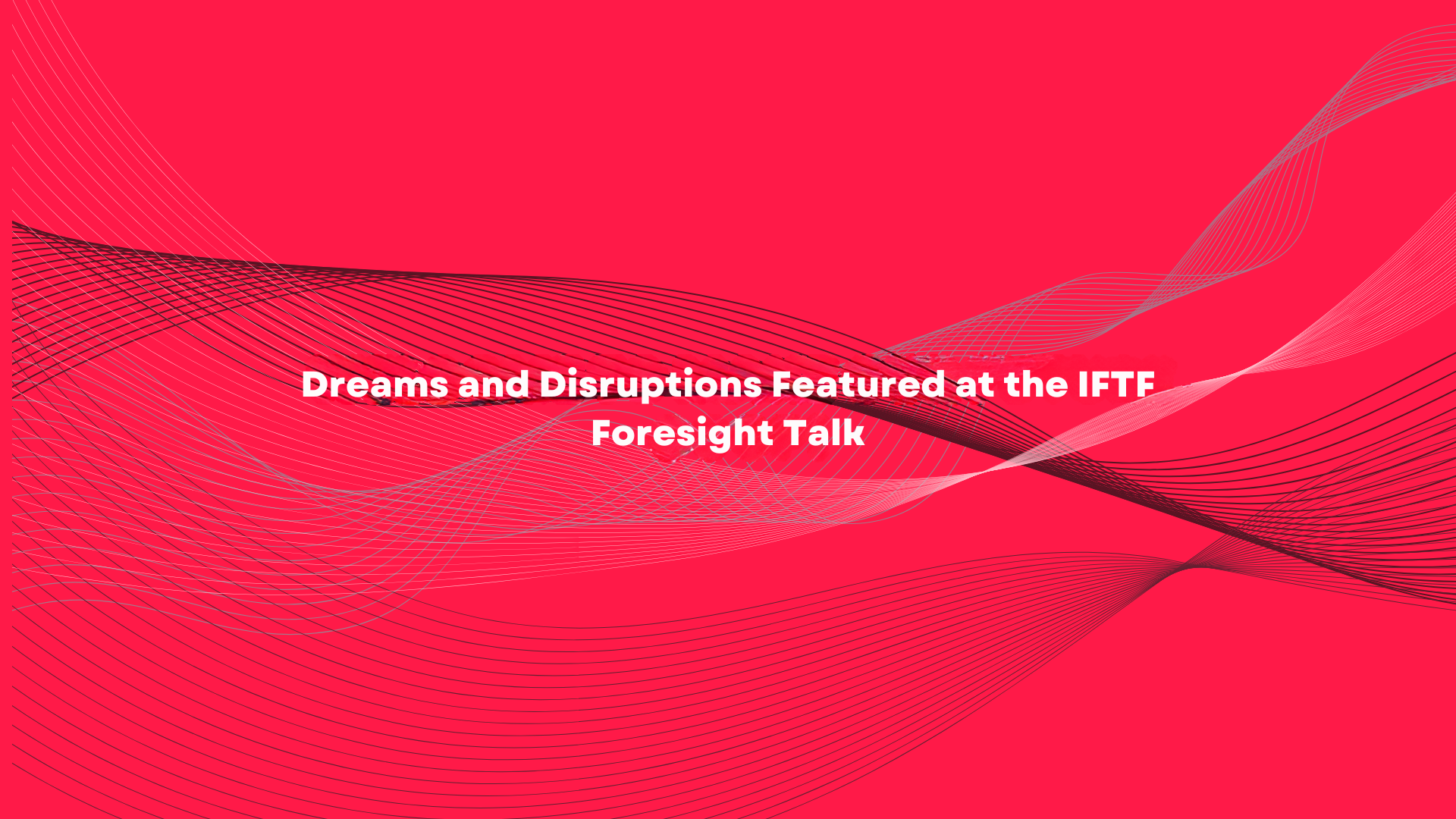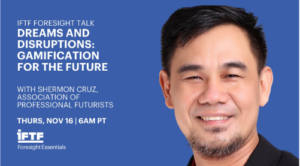
Dreams and Disruptions Featured at the IFTF Foresight Talk

Over a hundred people worldwide joined us at the recent IFTF Foresight Talk on Dreams and Disruptions! I thoroughly enjoyed the foresight conversation with Lyn Jeffery, Distinguished Fellow and Director at IFTF Foresight Essentials. It was an excellent opportunity to share my foresight journey, my views on gaming foresight, the latest APF developments, and more about the future.
During my talk, I delved into what prompted and led me to create Dreams and Disruptions (DnD). The first DnD workshop took place at the APFN Bangkok in 2019, and many wanderings came up after that – research, re-inventing the game, and drawing inspiration from fellow gaming futurists and colleagues over the years at the Center for Engaged Foresight. We tested several versions of it, using a variety of gameplays, and played over 200 virtual games since. This year, I played DnD almost 30 times, in person, this year. As of now, we have the latest VERSION, I would say 3.0, and yes, we finally have a physical card deck and a website that we launched it two months ago!
The next phase is to develop the digital version of this, which I am curating with some friends in the US who are willing to help me create a downloadable digital version. Additionally, we’re planning to create courses, training programs, toolkits, research agenda, global events and activities this next year. I hope all of these will come to fruition sooner rather than later.
Here are some key points about my talk on Dreams and Disruptions and regarding randomness, imagination, games, foresight and its futures, participation, inclusivity, the gamer’s mindset, and the constant exploration of the invisible to break the barriers of current human cognition:
- Random elements in games compel players to imagine unthought-of futures, and, if they’re lucky, adapt to the unexpected when revealed. This helps them make decisions on policy, strategy, and innovation on the fly (chaos). DnD also challenges participants to stress-test these unthought-of futures.
- Gaming randomness via DnD teaches players how to unpack the risks embedded in alternative future worlds, including transformation.
- Dealing with randomness requires critical and creative problem-solving. Players of Dreams and Disruption are often impressively capable of developing innovative and previously nonexistent but highly contextual ideas and strategies. For example, creating a peace cooperative and well-being excellence centers to address physical, mental, and spiritual scarcity and depression, legislating a spiritual tech equity access act a hundred years from now, or establishing a Creation of New Life Center after a planetary disruption like a comet impact, for example.
- DnD also allows you to facilitate conversations on how to respond and manage unexpected situations or emergence within the domains of leadership and movements, considering various lenses, including labor, military, capitalists, intellectuals, and the Sadvipra. These leadership and movement archetypes were inspired by Indian Social Philosopher and Guru PR Sarkar – Sarkar’s Law of Social Cycle, but then, real planetary disruptions come into play!
- We don’t get to choose our crises. Learning from failure and success is key to human and organizational evolution.
- Randomness when revealed or known, enable us to study its patterns or lack thereof, if that is even possible.
- Building teamwork and communication. Participatory futures enable players to craft shared and contrasting narratives for the future. Biases and radical imaginations are revealed but also reflected upon. We question what scenarios are exactly?
Imagination is a source of discovery, and it’s a skill set that is invaluable in foresight learning and applying foresight, whether in business, politics, or personal life, and more.
